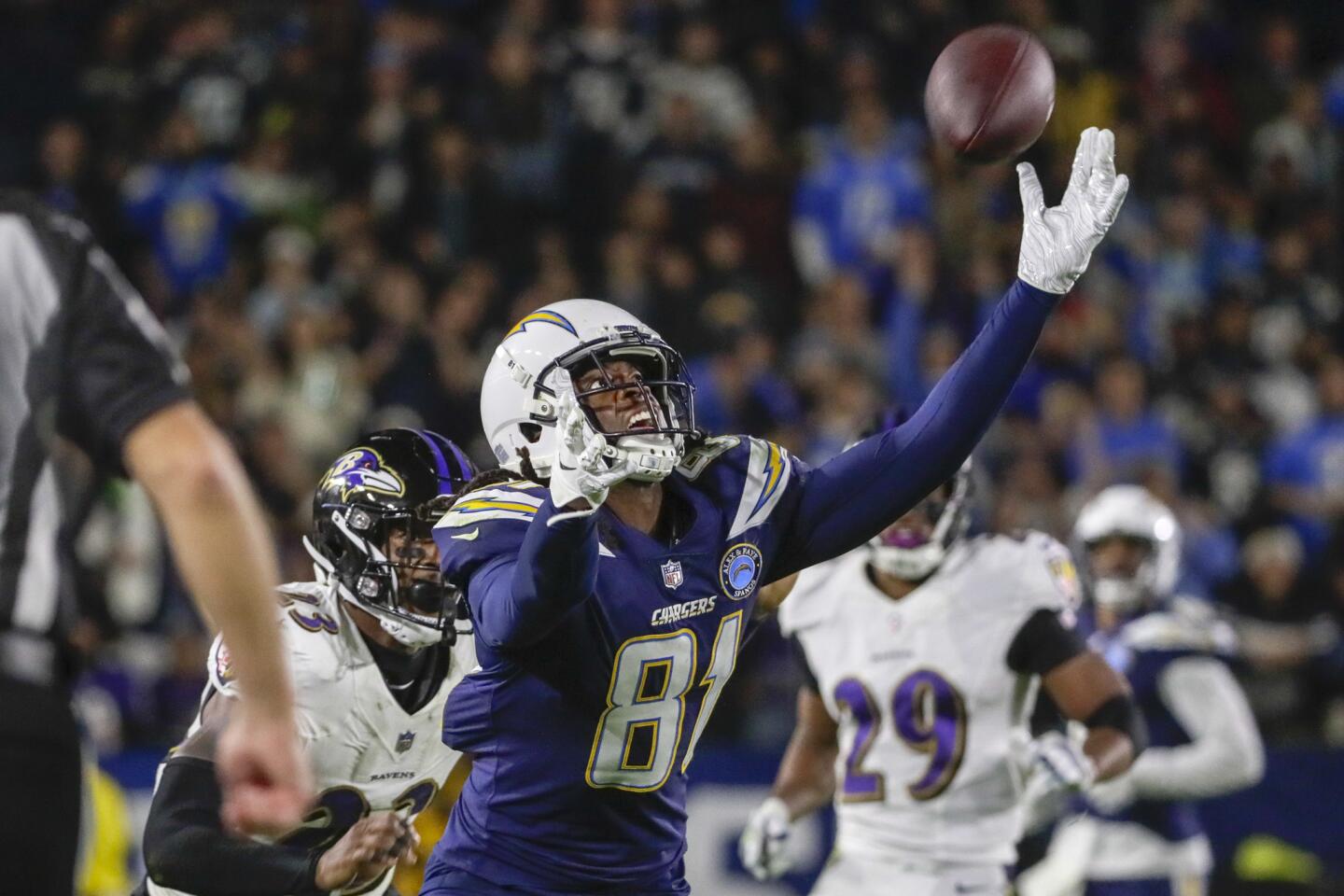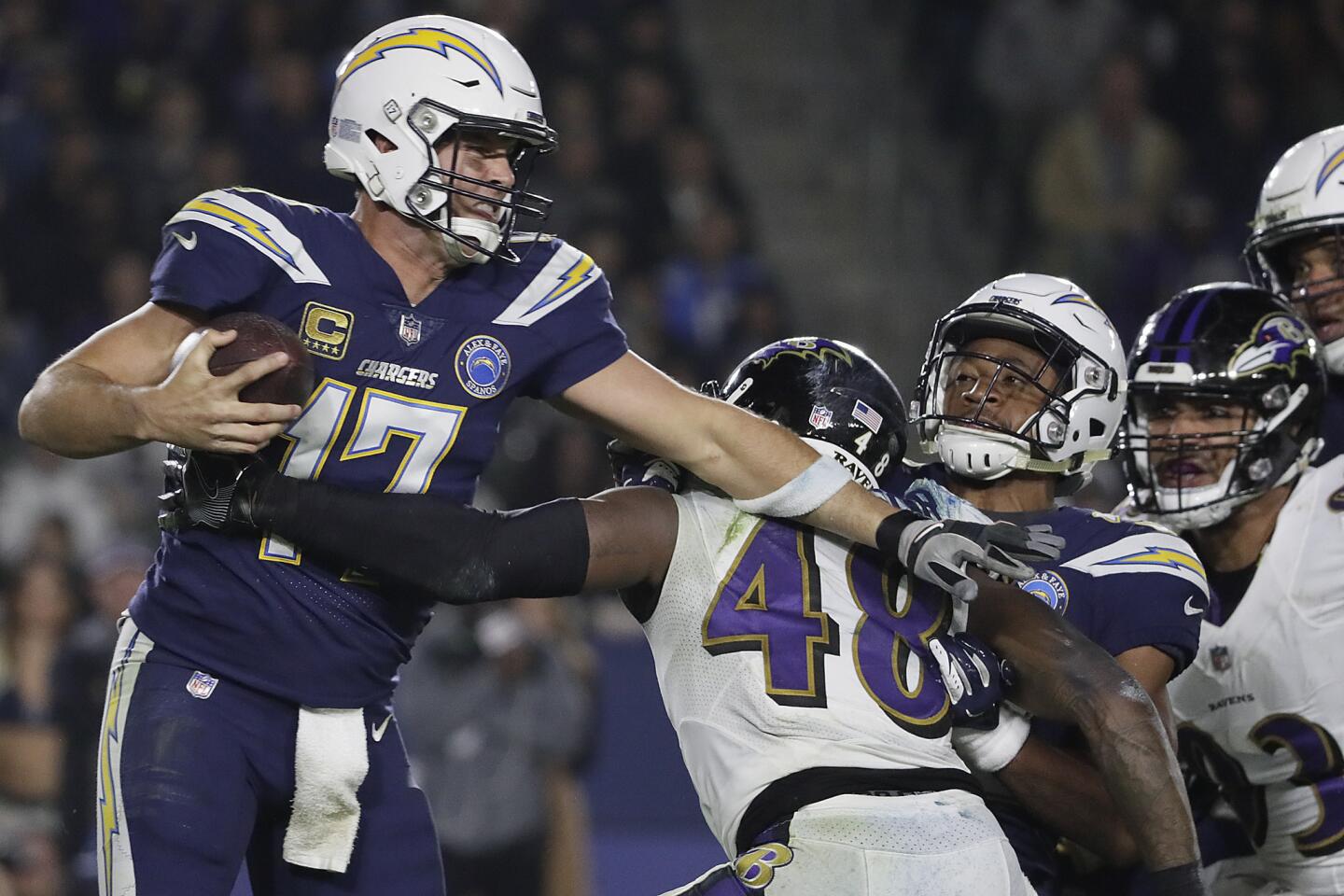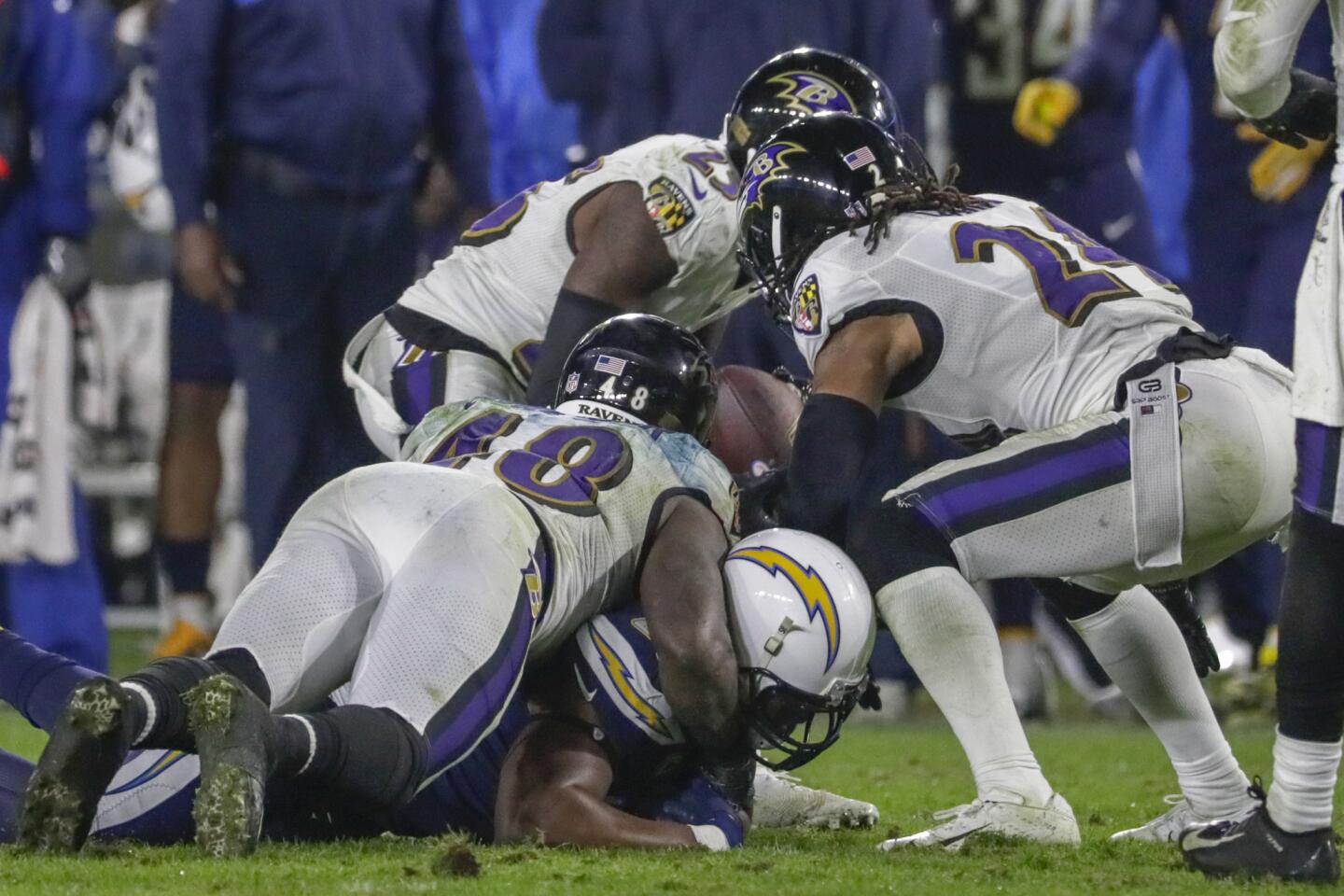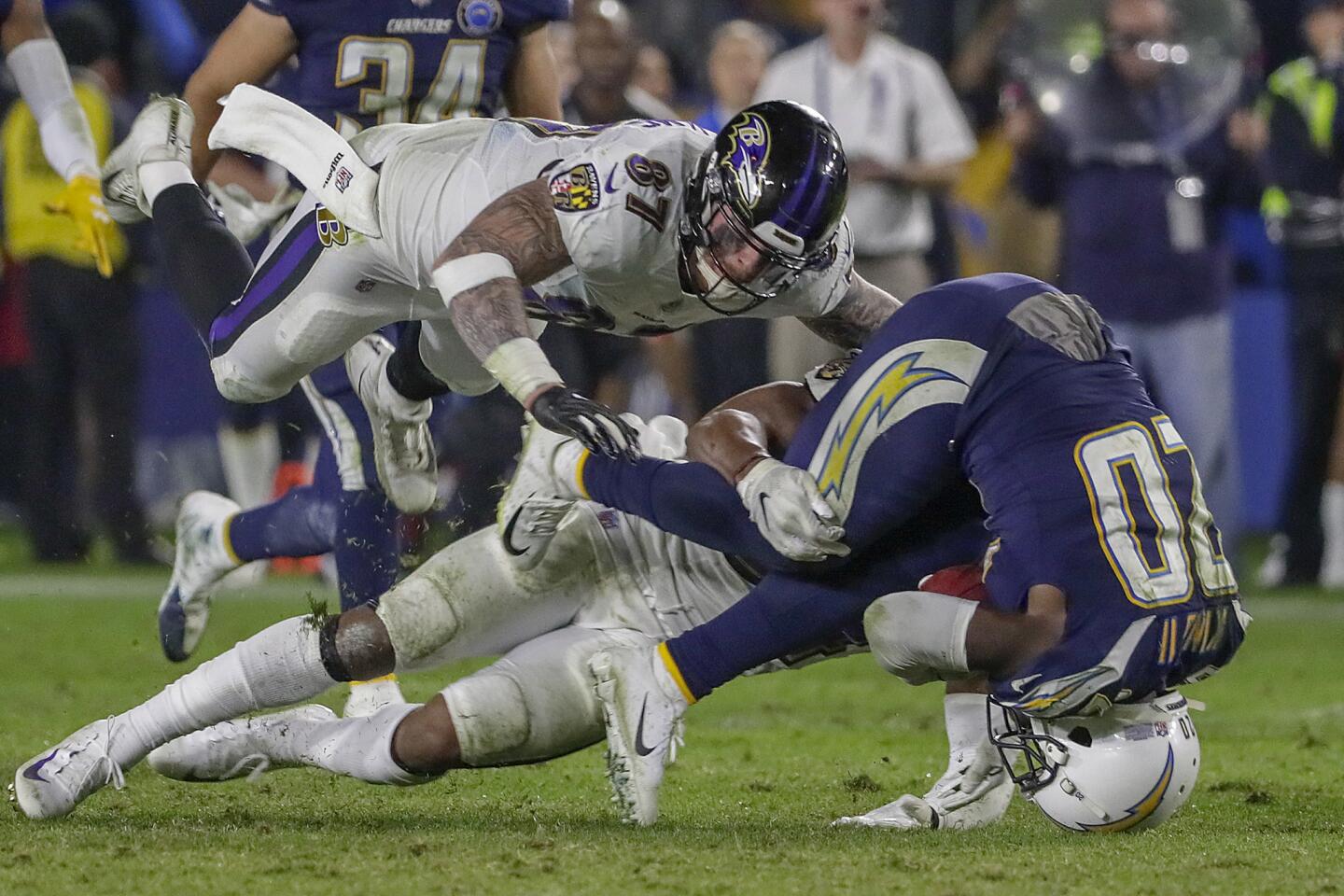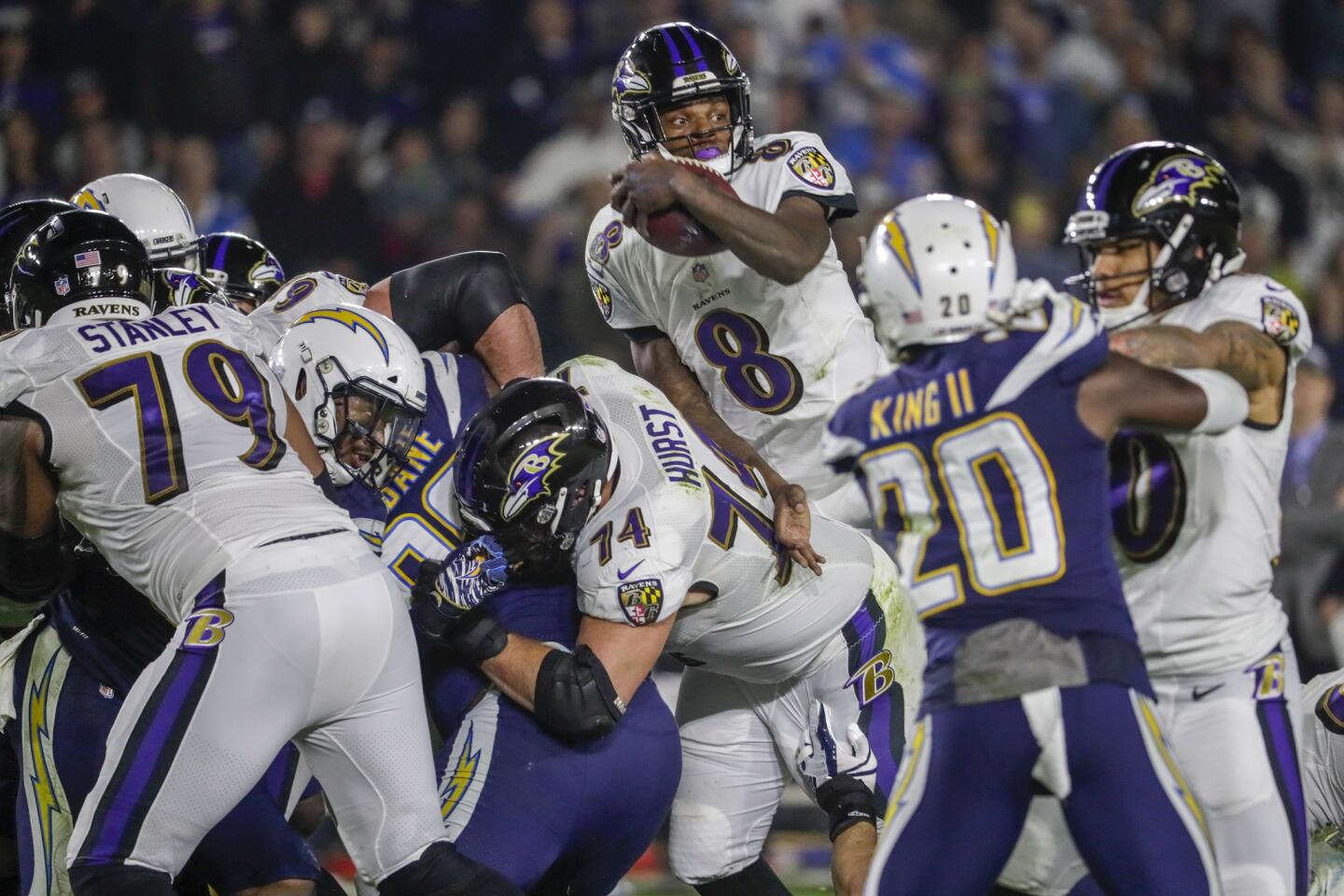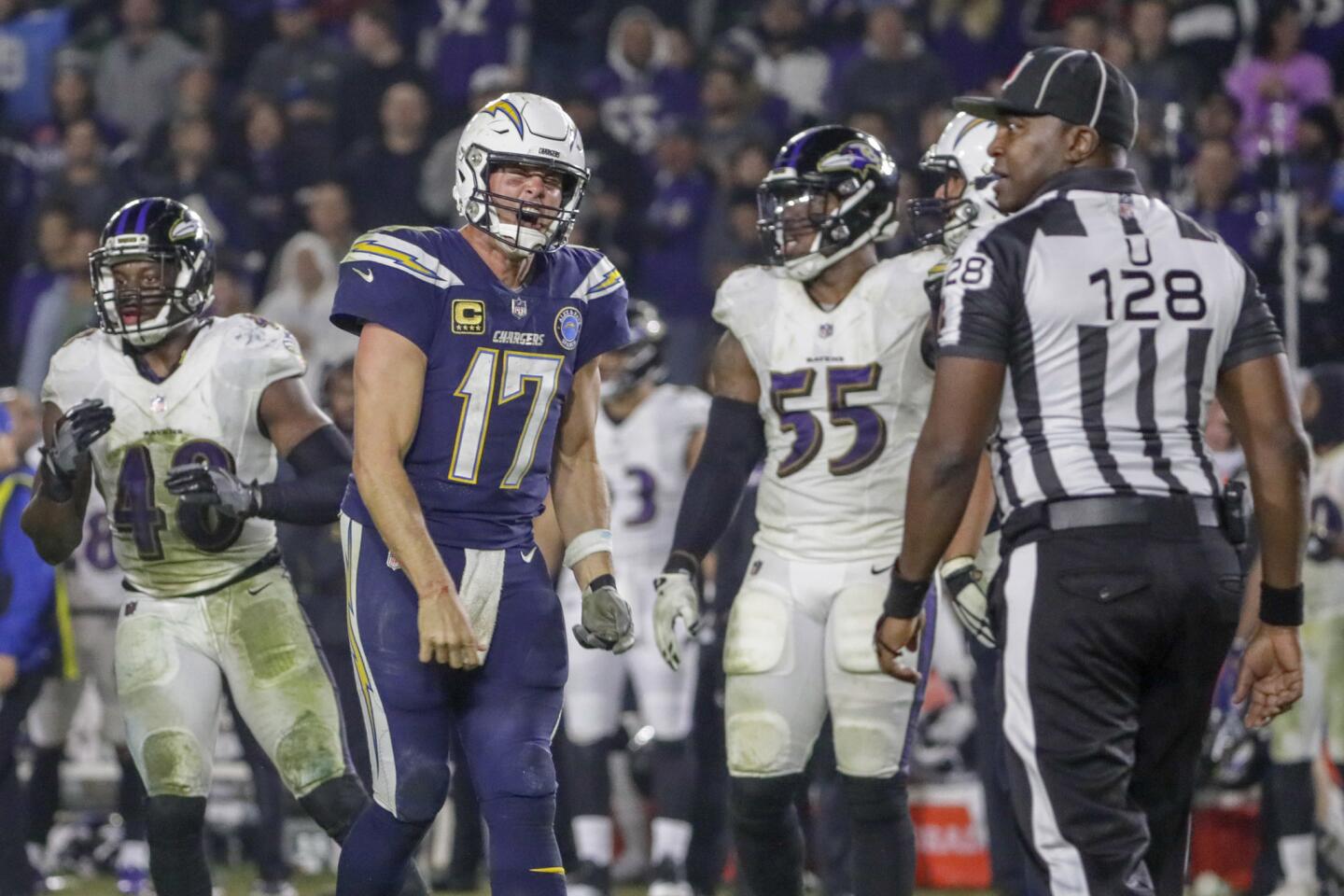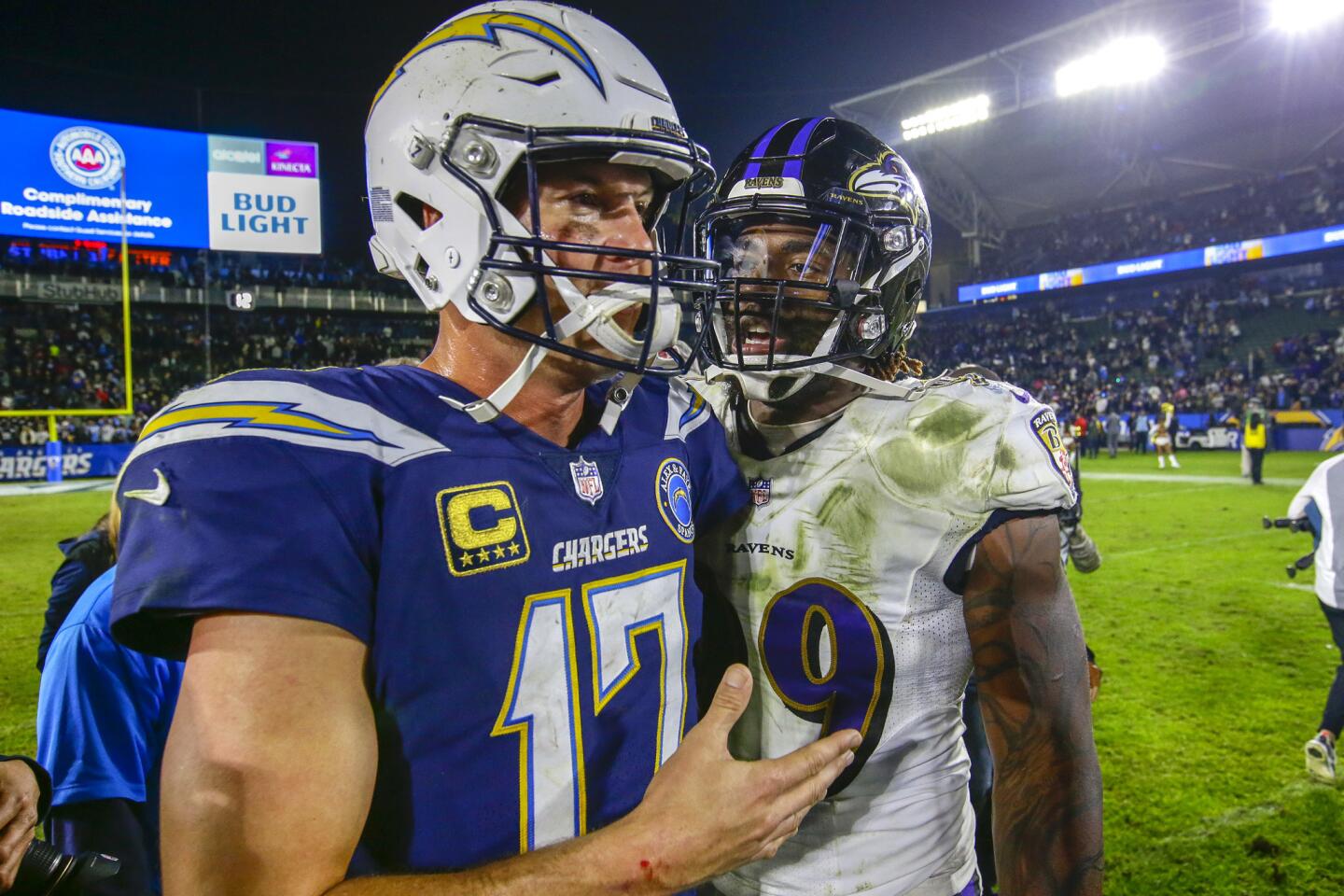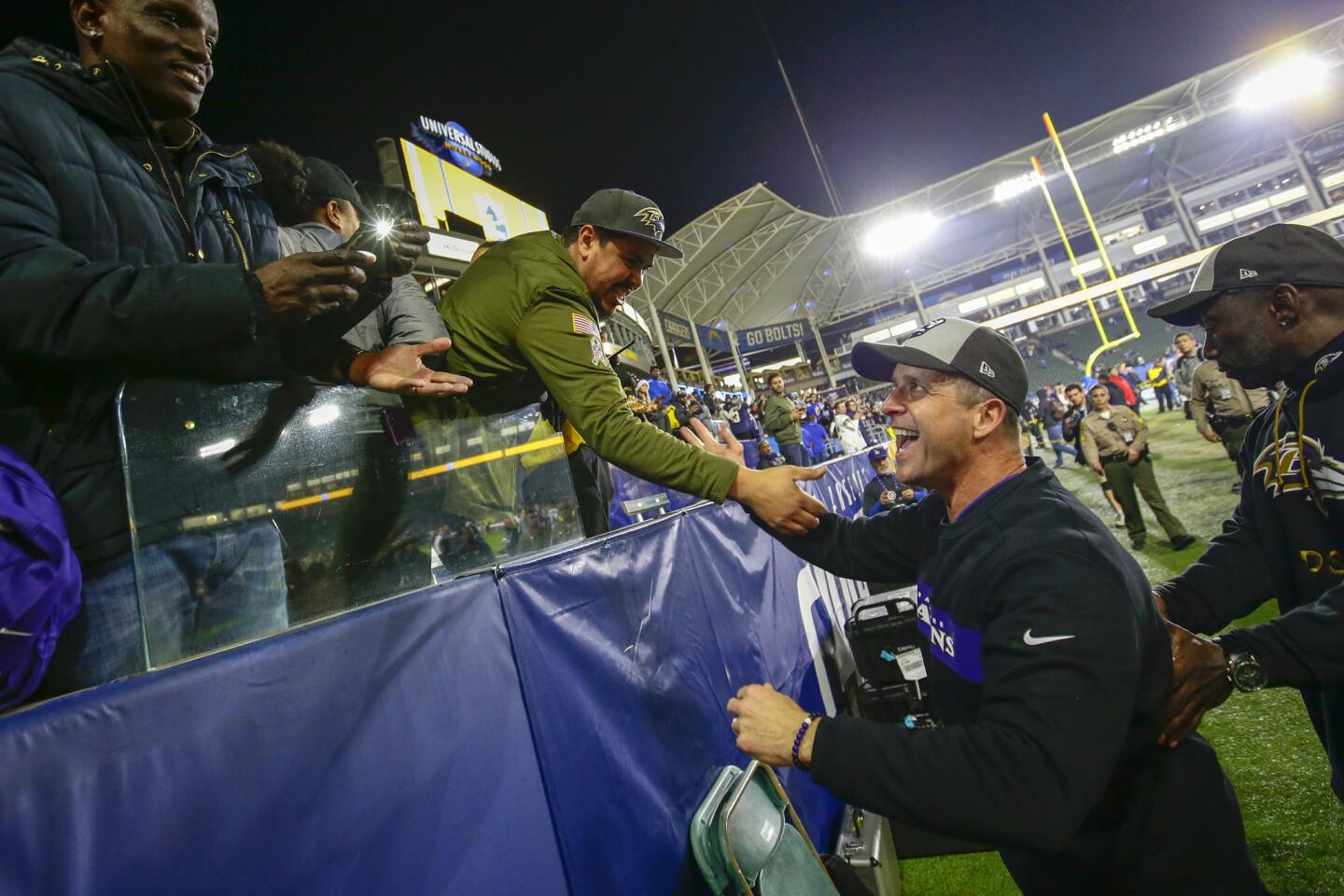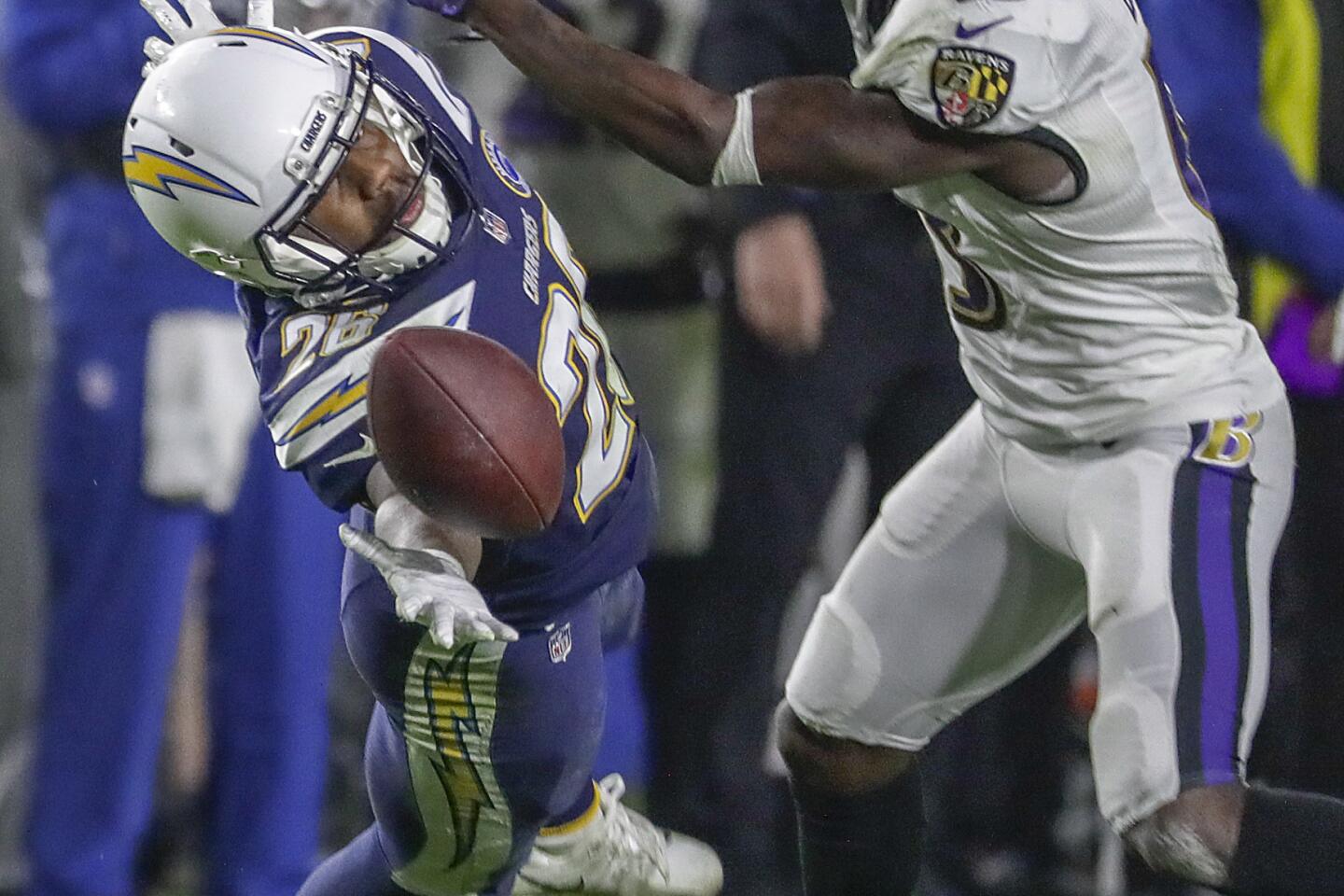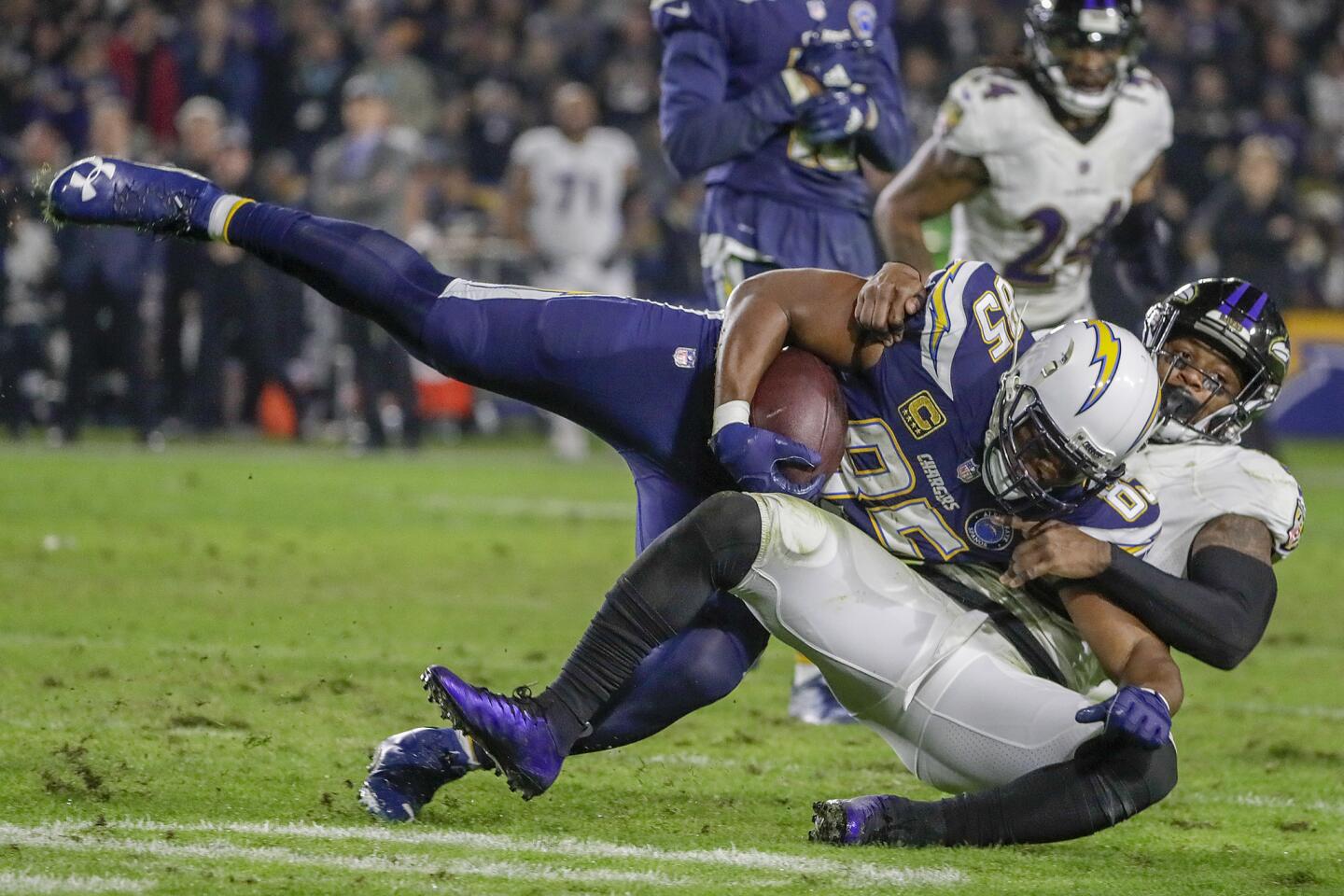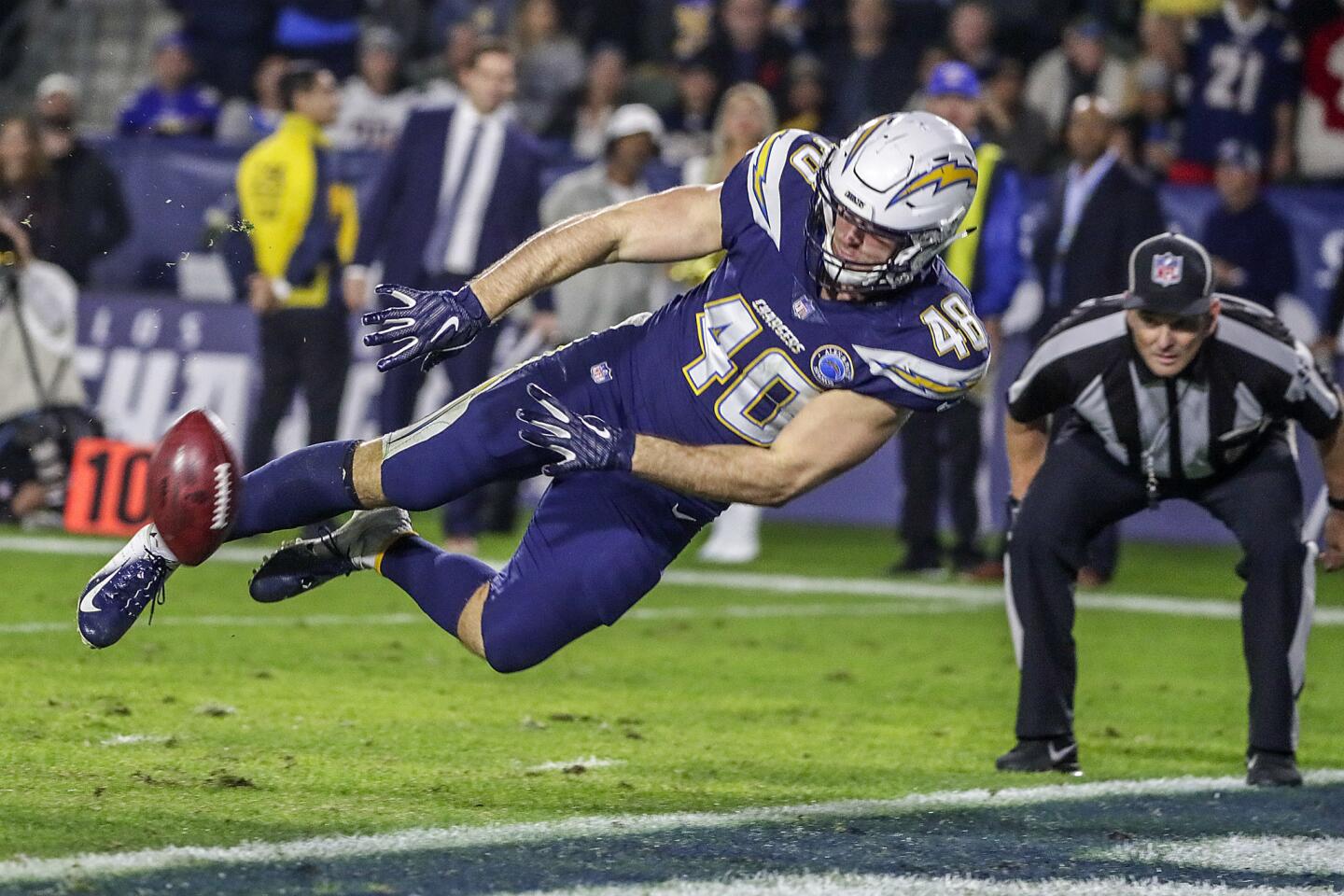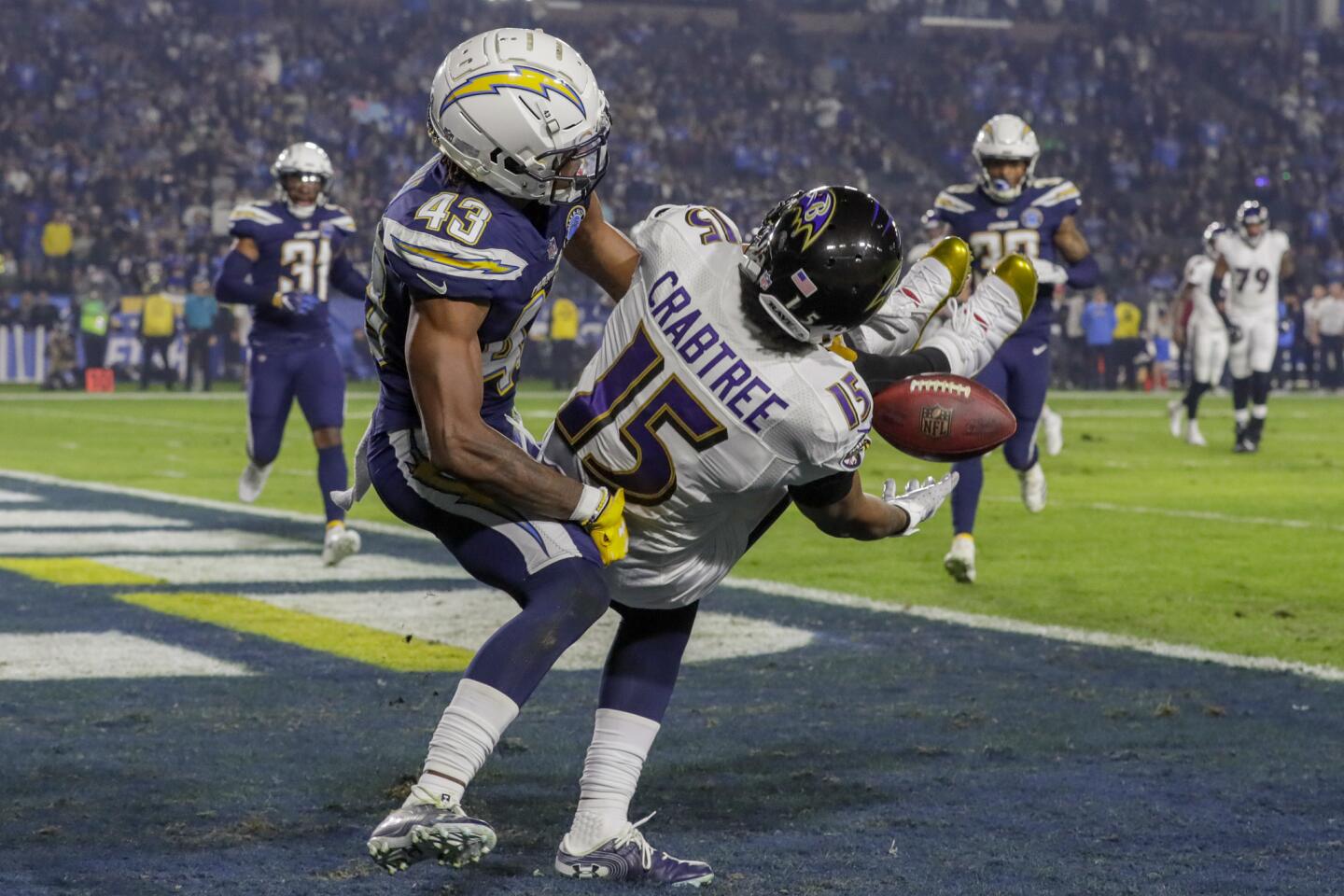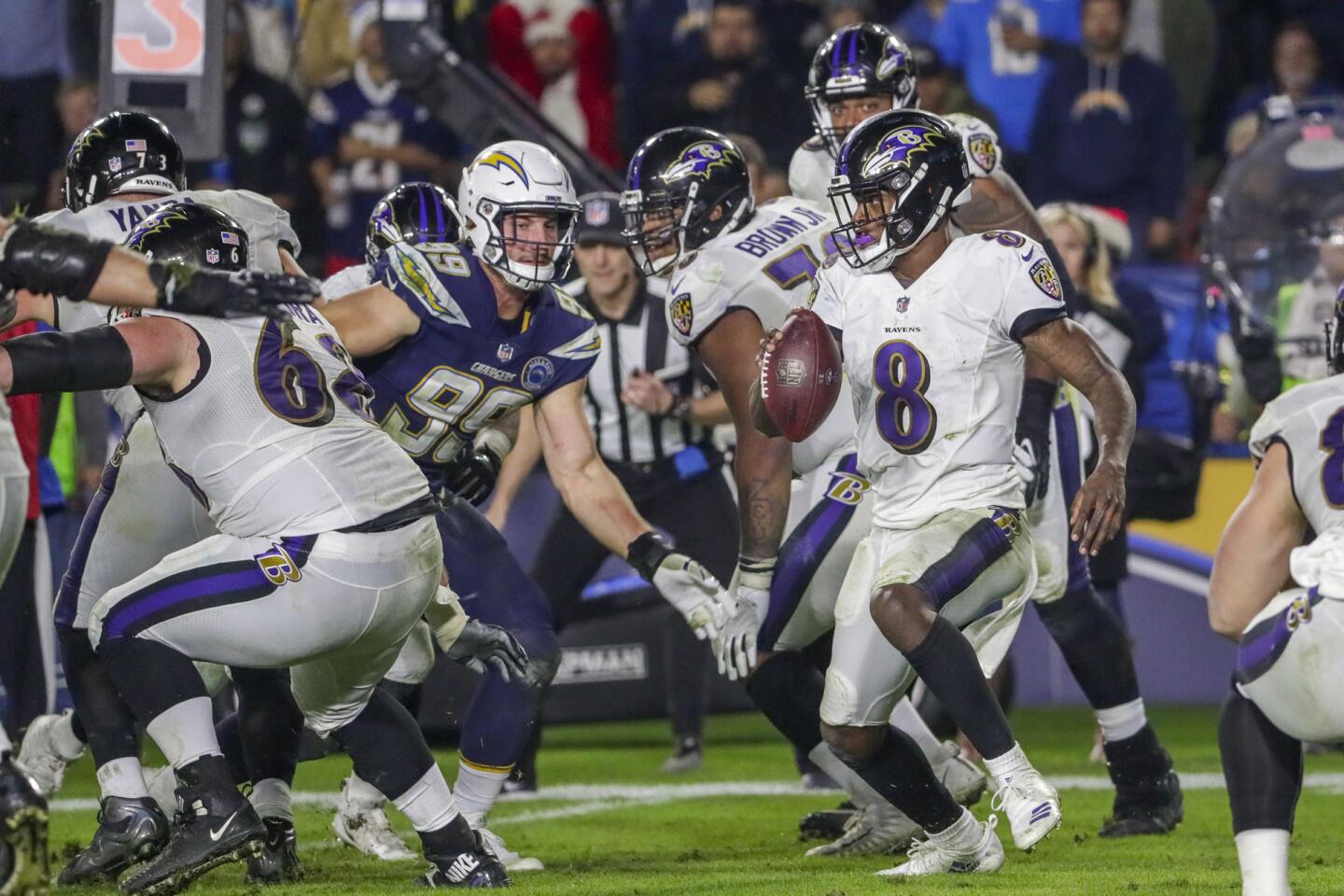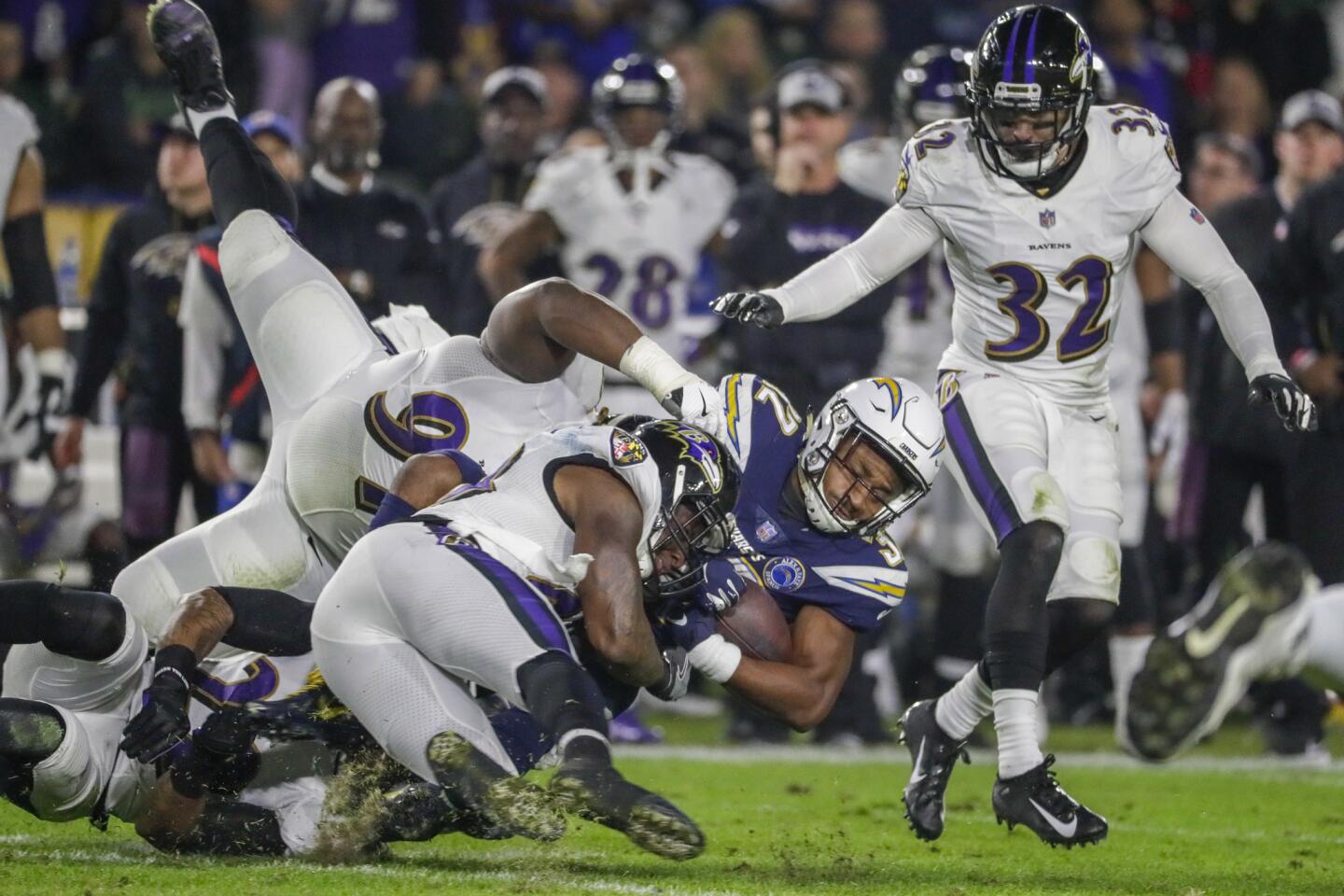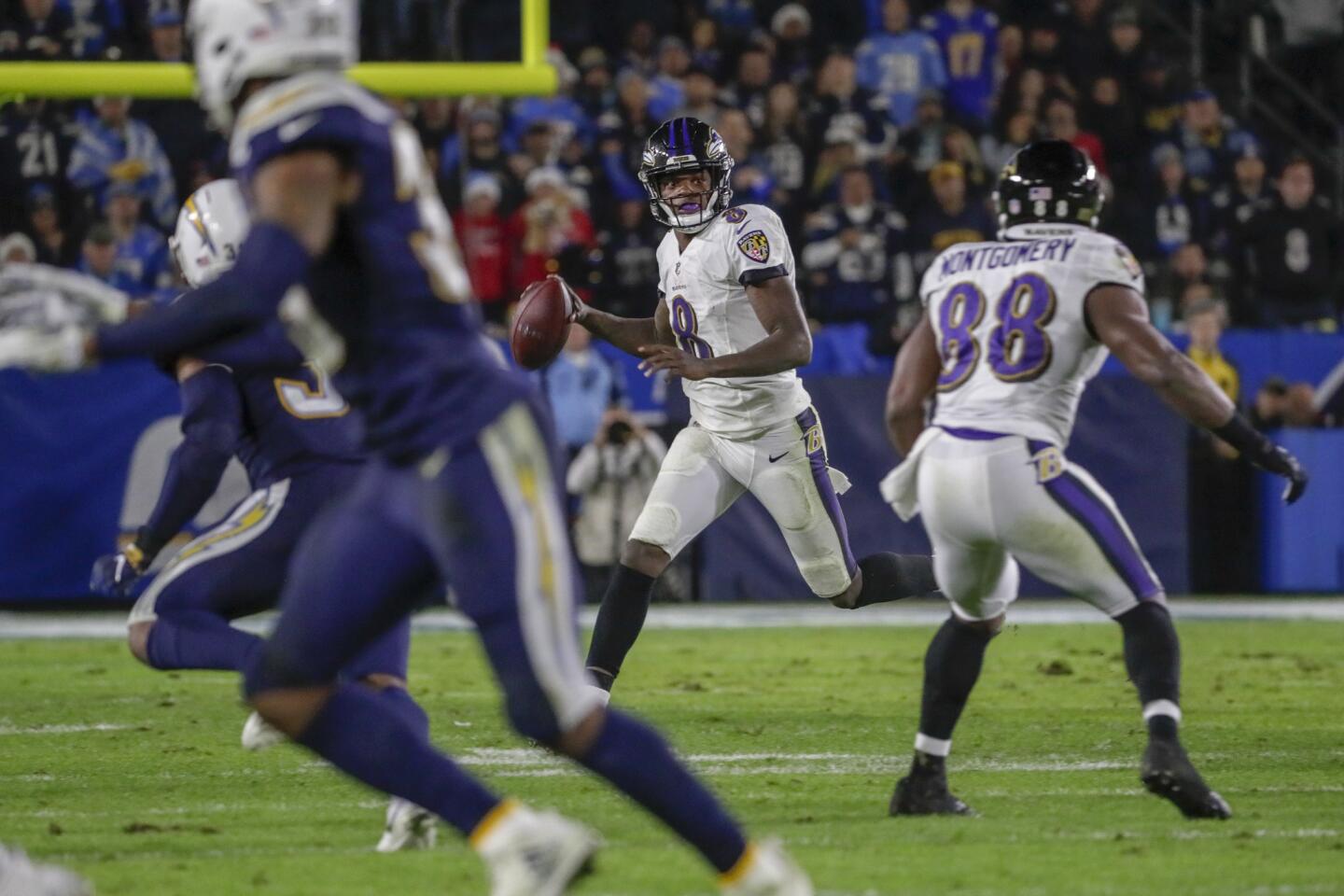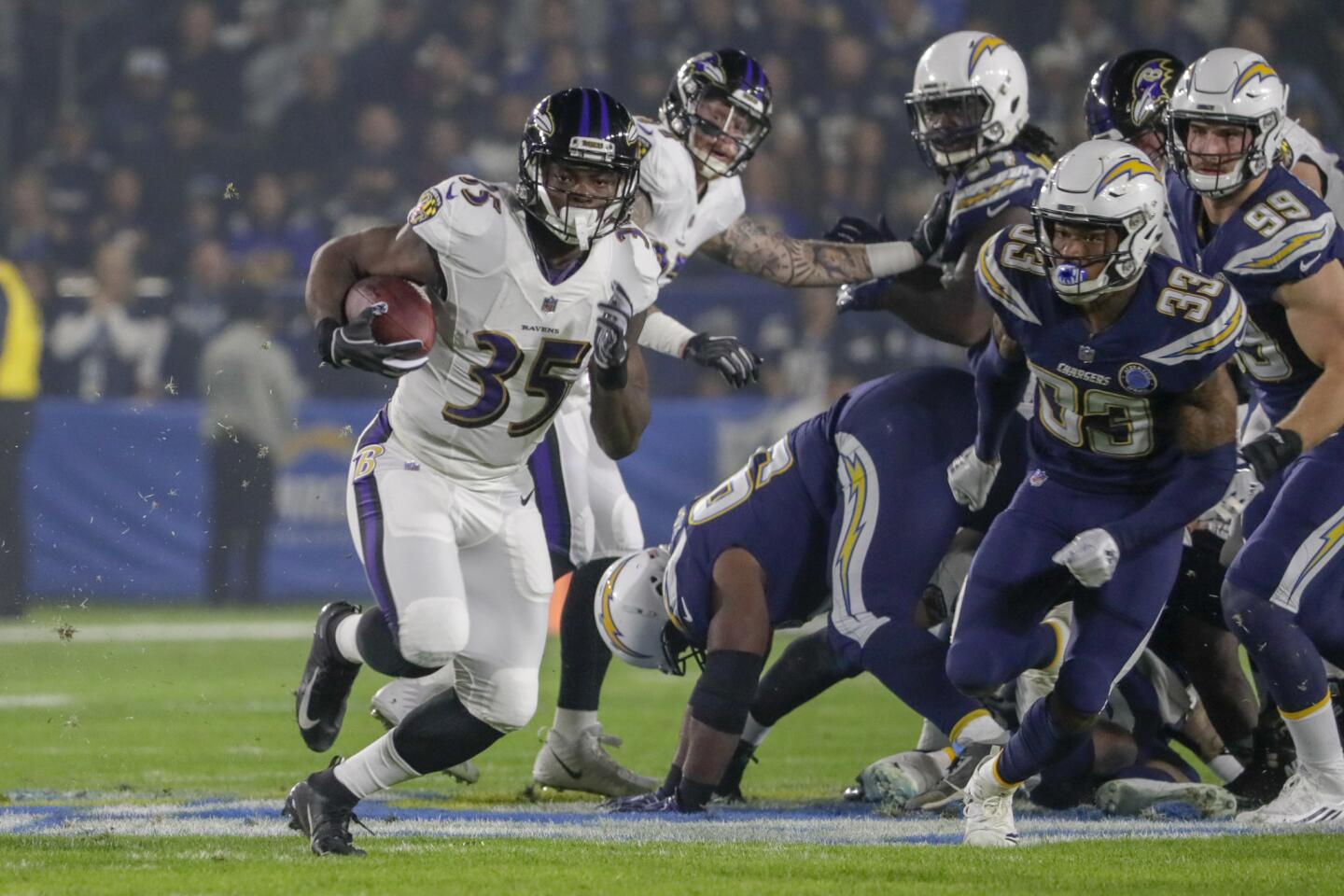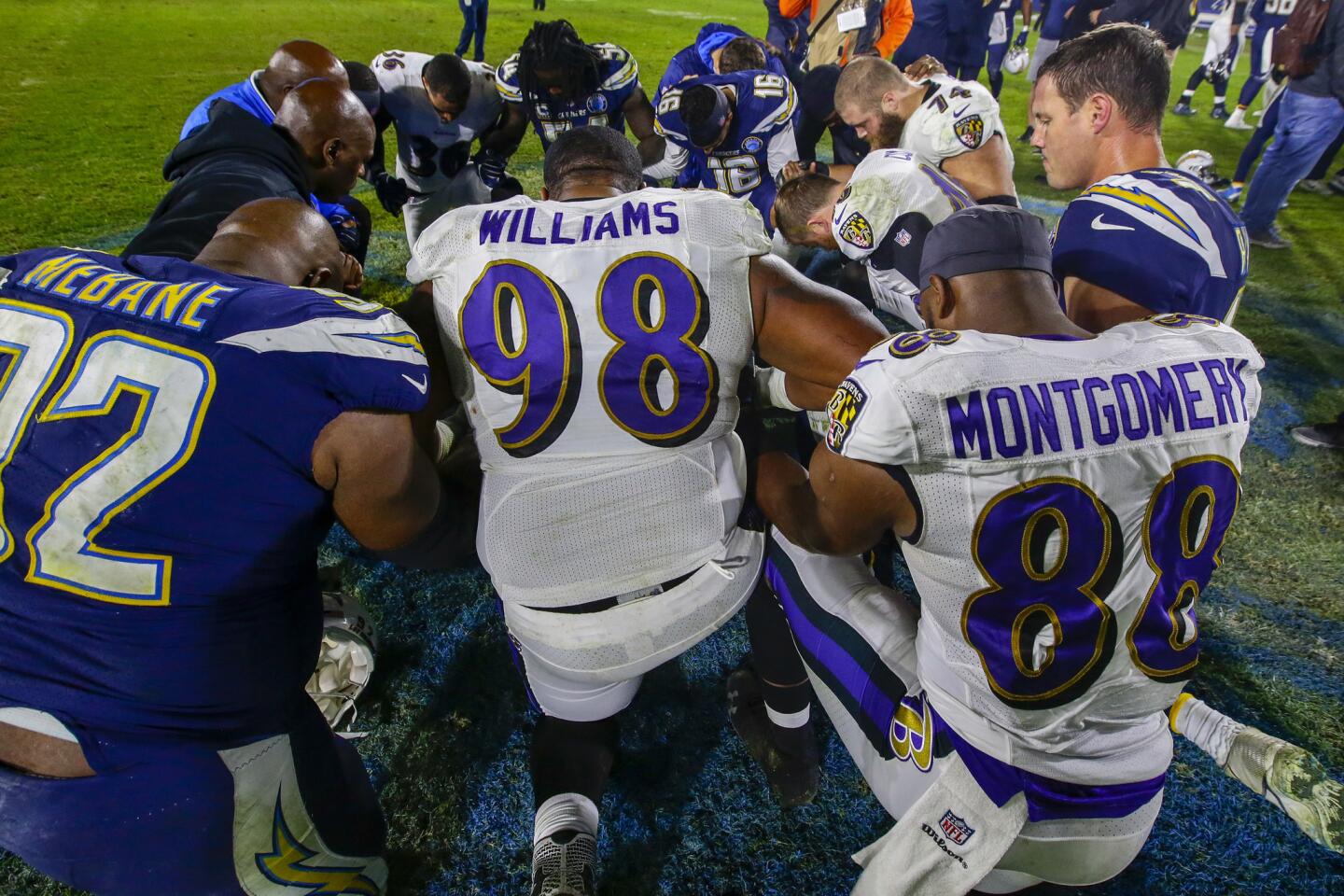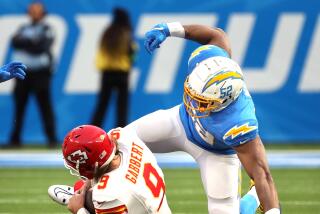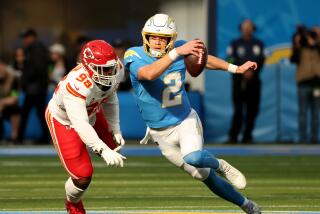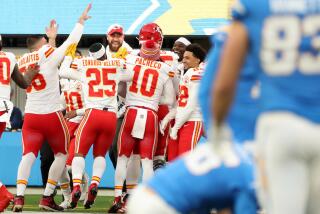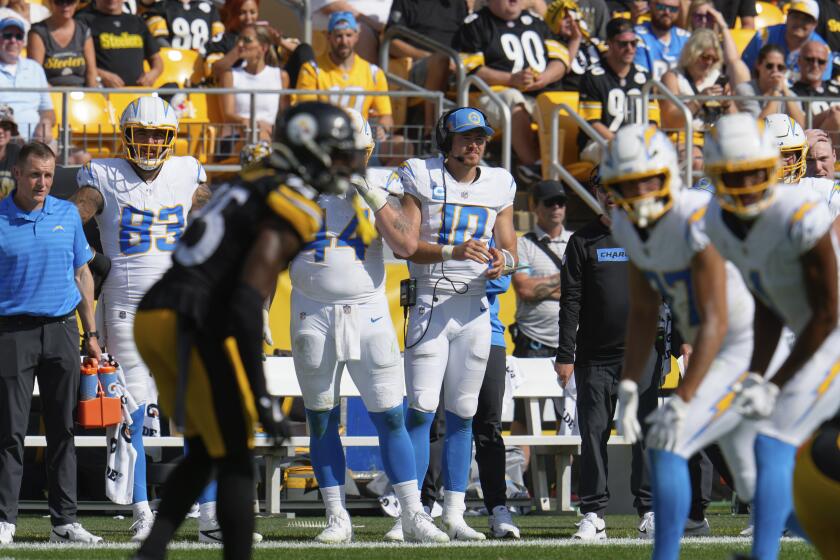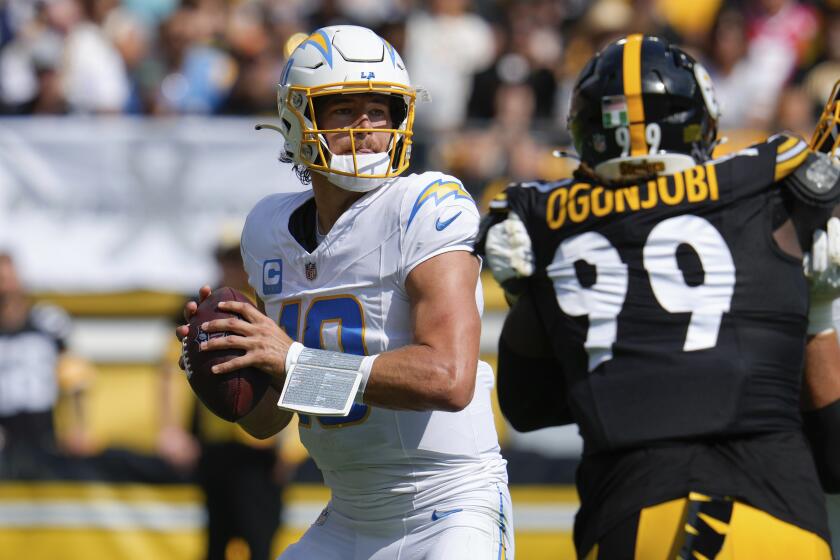Chargers’ comeback attempt fails in 22-10 loss to Ravens
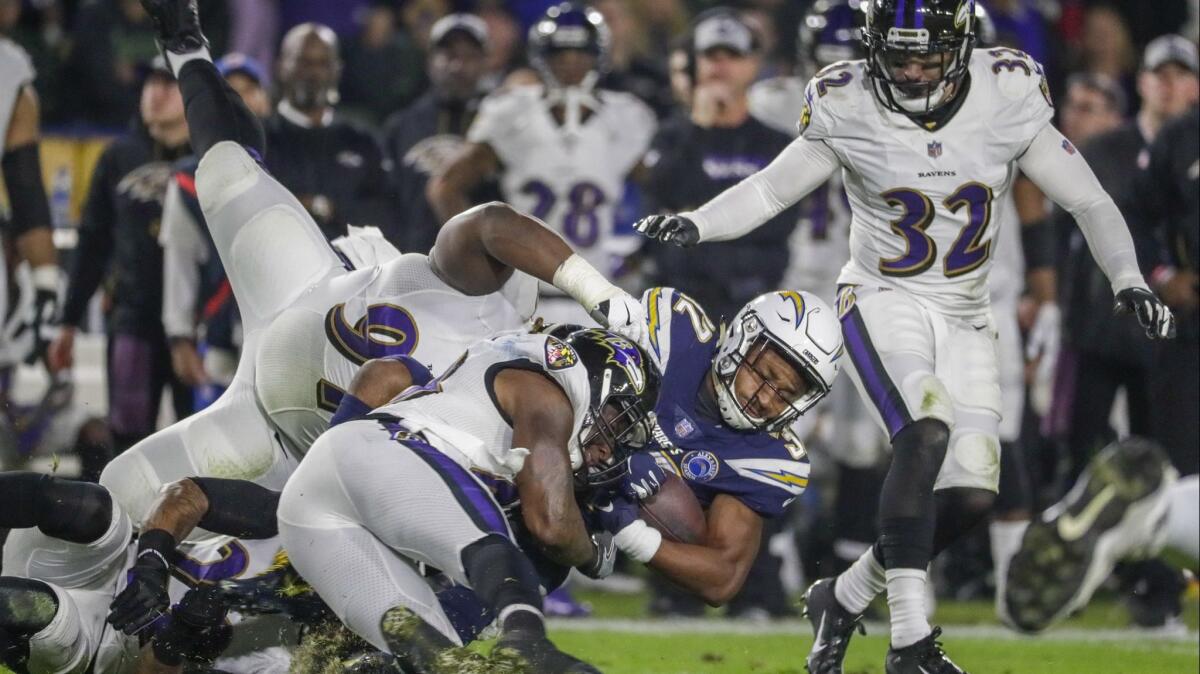
They had played their way to the top of the AFC, making possible only everything, including being the conference’s No. 1 playoff seed.
Then the Chargers left StubHub Center late Saturday night knowing they probably are destined to wild-card status and a Super Bowl path that runs distinctly uphill.
“It’s a terrible feeling,” center Mike Pouncey said, “because we had an awesome opportunity in front of us and we let it slip away.”
In losing 22-10 to the Baltimore Ravens, the Chargers fell to 11-4 and a half-game behind Kansas City in the race for the AFC West and top seed. The Chiefs can clinch both with a victory Sunday night at Seattle.
The Chargers had moved to the forefront of the NFL by winning 10 of 11 before Saturday, a climb highlighted by dramatic road wins at Pittsburgh and Kansas City.
Success away from home is probably the only way this team will be able to make anything happen in the postseason, a potential rematch with the Ravens in Baltimore in two weeks a first-round possibility.
“It’s disappointing to lose a game that you worked hard on all week,” coach Anthony Lynn said. “That’s the most disappointing thing. Yeah, we’d like to be the No. 1 seed in the playoffs and all that, but that’s out the window now.”
The Chargers struggled mightily right from the start against the Ravens, who have won five of six since rookie quarterback Lamar Jackson became their starter.
Facing the NFL’s No. 1 defense in points and yards allowed, the home team finished with only 198 total yards, averaging 3.5 per play on 57 snaps. The Chargers had only 14 first downs and turned the ball over three times.
They also didn’t have a first down until the second quarter and didn’t convert a third down until the final play of the third quarter. They were continually hurt by critical penalties and the Ravens’ ability to pressure Philip Rivers.
“He was under a lot of stress,” Lynn said of Rivers, who finished 23 for 37 for 181 yards, two interceptions and no touchdowns. “There wasn’t just one guy out there. I think they were taking turns.”
Still, in the fourth quarter, the Chargers had a chance, trailing 16-10.
They had a 12-play drive that reached the Baltimore 28-yard line before dying without as much as a field goal attempt. Rivers was sacked by Za’Darius Smith for an 11-yard loss to end that possession.
Their next series began at the Ravens’ 39-yard line with three minutes remaining after a 24-yard punt return by Desmond King.
But on the second play, veteran tight end Antonio Gates fumbled when he was hit by linebacker Patrick Onwuasor. Tavon Young picked up the ball and ran it back 62 yards for the clinching touchdown.
On offense, the Chargers managed little through the first two quarters and trailed 6-3 at halftime, the gap that slim only because of the defense’s ability to prevent Baltimore from reaching the end zone.
The Ravens, as their preferred method, dominated the ball and benefited when the Chargers repeatedly stifled their own momentum with penalties Lynn later called “stupid.”
Three times early in the game, the Chargers had apparent first downs taken away by infractions.
One — an offensive pass-interference call on wide receiver Keenan Allen — appeared on replays to be questionable and negated a 27-yard gain deep into Baltimore territory.
The mounting flags (they finished with eight penalties for 69 yards) appeared to fluster several Chargers, including most notably Rivers, who complained frequently and animatedly without success.
“We felt like some of them were bad calls, but it’s human nature,” Pouncey said. “These guys are human just like we are. They’re going to make good calls, and some calls, they’re going to miss. Whatever call they make, we got to go out there and play the next play.”
Said running back Melvin Gordon: “We killed ourselves with penalties. I think we were making plays, just didn’t have the opportunities.”
Having been limited to five first downs and 72 yards in the first half, the Chargers finally received a spark on the first play of the third quarter.
That play came from the defense when lineman Darius Philon reached in to cause Kenneth Dixon to fumble. Melvin Ingram recovered to give the Chargers possession at the Baltimore 17-yard line.
Three Gordon runs later, the Chargers had their first lead, with Michael Badgley’s extra point making it 10-6.
That edge, however, was gone exactly one minute later when Jackson hit tight end Mark Andrews for a 68-yard touchdown to put the Ravens back on top 13-10.
That would prove to be the Chargers’ only lead in another game during which they trailed early on — Baltimore’s first points came on a field goal 2:17 into play.
“This time of year you got to be good for four quarters,” Pouncey said. “It can’t just be one half here, one half there. You got to come out and play the right way the entire game, and today we didn’t.”

THe Chargers shrug off the indifference from Los Angeles fans as they eye a Super Bowl appearance.
Twitter: @JeffMillerLAT
More to Read
Go beyond the scoreboard
Get the latest on L.A.'s teams in the daily Sports Report newsletter.
You may occasionally receive promotional content from the Los Angeles Times.

